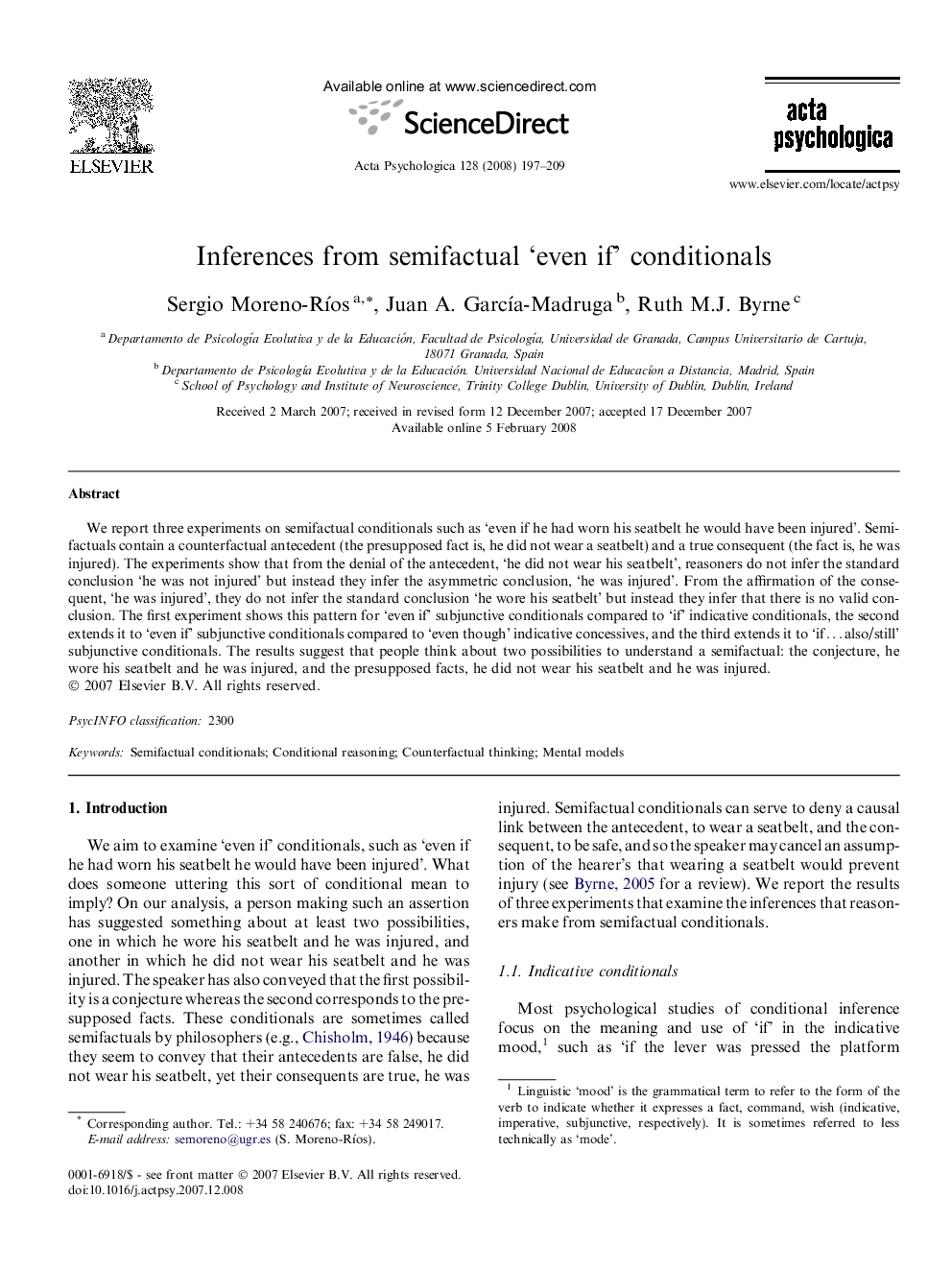| Article ID | Journal | Published Year | Pages | File Type |
|---|---|---|---|---|
| 920453 | Acta Psychologica | 2008 | 13 Pages |
We report three experiments on semifactual conditionals such as ‘even if he had worn his seatbelt he would have been injured’. Semifactuals contain a counterfactual antecedent (the presupposed fact is, he did not wear a seatbelt) and a true consequent (the fact is, he was injured). The experiments show that from the denial of the antecedent, ‘he did not wear his seatbelt’, reasoners do not infer the standard conclusion ‘he was not injured’ but instead they infer the asymmetric conclusion, ‘he was injured’. From the affirmation of the consequent, ‘he was injured’, they do not infer the standard conclusion ‘he wore his seatbelt’ but instead they infer that there is no valid conclusion. The first experiment shows this pattern for ‘even if’ subjunctive conditionals compared to ‘if’ indicative conditionals, the second extends it to ‘even if’ subjunctive conditionals compared to ‘even though’ indicative concessives, and the third extends it to ‘if … also/still’ subjunctive conditionals. The results suggest that people think about two possibilities to understand a semifactual: the conjecture, he wore his seatbelt and he was injured, and the presupposed facts, he did not wear his seatbelt and he was injured.
